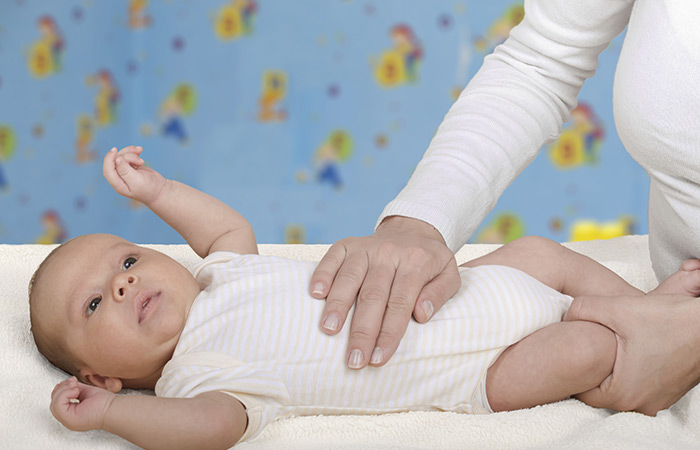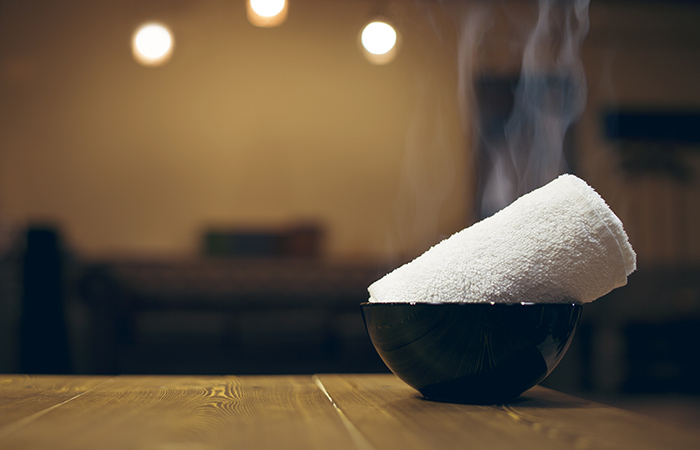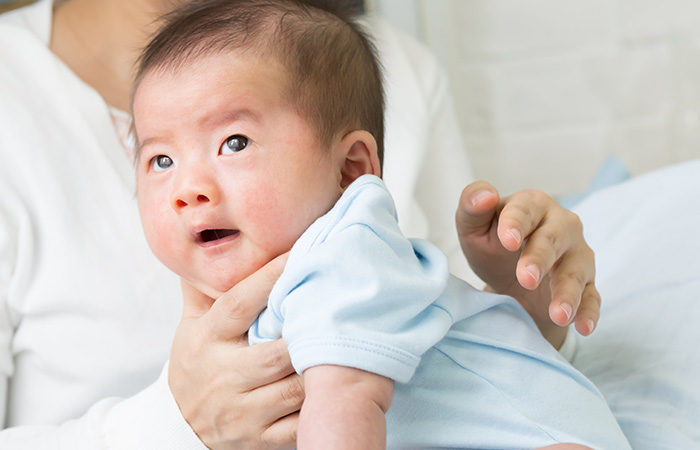Just when you were beginning to bask in the glory of motherhood, you notice your little one constantly throwing up or struggling with digestion. Well, it is rightly said that with great power comes great responsibility. Being a new mother is far from easy as you constantly worry about your little one’s welfare. If you are a new parent, stressing over your baby’s digestive health is normal. This article will take you through some common digestion problems faced by your tiny tot and tell you how to solve them. Read on.
What Causes Digestion Problem In Babies?
Babies often struggle with digestion difficulties – thanks to their delicate digestive machinery. The esophageal sphincter, which is a valve that prevents food from the stomach from returning to the food pipe, is still developing in babies. This is one of the main reasons growing babies may experience difficulties in digestion. This also causes acid reflux in babies.
Other common causes of digestive issues in babies include:
- Viral or bacterial infections. Such infections usually cause babies to throw up.
- Babies tend to suck in a lot of air during the initial months. This can cause gas in infants, and it usually eases as they grow.
- As babies start consuming solid foods, they may experience constipation.
- Lactose intolerance
The symptoms exhibited by babies with poor digestion are often associated with the root cause of the issue.
Signs And Symptoms
The common signs and symptoms associated with poor digestion in babies include:
- An unusually fussy baby
- An infection that may also result in fever
- Diarrhea
- Vomiting
- Constipation
- Bloating
Such symptoms are rather common in babies suffering from digestion problems. However, if you notice any of the following signs in your infant, see a doctor immediately.
When To Visit A Doctor
Visit a doctor if your baby is exhibiting symptoms like:
- A high fever
- Severe episodes of diarrhea
- Loss of appetite
- Weight loss or slow weight gain
- Recurring hiccups
- Breathing difficulties
- Vomiting a green substance
- Blood stains while vomiting
- Dehydration
- Looking overly lethargic
- Blood stained stools
- Can’t pass stool at all
All of these signs call for immediate medical intervention, and you must see a doctor immediately if you notice any of them.
Diagnosis
When you visit a doctor, they might first physically examine your baby. This may be followed by a thorough analysis of your infant’s medical history.
Your doctor may ask for any of the following diagnostic tests:
- Testing the albumin level to look for liver disorders
- Complete blood count to look for an infection or inadequate feeding
- Electrolyte tests to see if the baby is dehydrated
- Fecal fat test – Your baby will be asked to be fed a high-fat diet for several days to carry out this test. The baby’s stool is then tested later to look for the fat content. Malabsorption does not allow the fat to be digested, and thus, high levels of fat will be present in the tested feces.
- Fecal occult blood test to look for hidden blood in the stool
- Hydrogen blood test to look for various problems like carbohydrate intolerance, bacterial overgrowth, etc.
- Stool culture to look for bacterial infection
- Urea breath test to look for the presence of Helicobacter pylori (H. pylori) in the digestive tract.
In some cases, imaging tests may also be suggested. Such tests include:
- Computed tomography or CT scan
- Magnetic resonance imaging (MRI) scan
- Ultrasound
- Colonoscopy
These procedures allow the doctor to look at different organs of the baby and determine if he/she is suffering from adverse digestion difficulties.
However, most of the times, digestion problems are only mild to moderate in growing babies and can be reversed with a bit of extra attention.
The following are some natural ways that can help enhance your baby’s digestive system.
How To Improve Digestion In Babies Naturally
Home Remedies To Improve Digestion In Babies
1. Infant Massage
Massaging your baby can help ease many digestion problems (1). Start massaging around the belly button and move your hands clockwise, downwards. Progress from one finger to the whole palm, gently pressing down. Moving your baby’s legs in and out together in a rhythmic manner can also help.
2. Warm Compress
You Will Need
- A bowl of warm water
- A clean washcloth
What You Have To Do
- Soak a clean washcloth in a bowl of warm water.
- Wring out the excess water and place the warm compress over your baby’s tummy.
- Leave it on for a minute and remove.
- Repeat this procedure 2-3 times.
How Often You Should Do This
You can do this 1-2 times daily until you notice an improvement in your baby’s condition.
Why This Works
A warm compress can calm and soothe your baby. It may also help with gas and bloating.
3. Adjust Your Feeding Position
Adjusting your feeding position while breastfeeding the baby can help in battling digestive difficulties like acid reflux. It is important that you hold your baby in an upright position while feeding so that milk doesn’t come back up. It is also recommended that you try and keep your baby in an upright position for at least 30 minutes following a feed (2).
4. Yogurt
You Will Need
A few teaspoons of diluted yogurt
What You Have To Do
- Dilute a couple of teaspoons of yogurt with distilled water.
- Feed your baby this mixture.
Note: It is better to consult a doctor before opting for this remedy.
How Often You Should Do This
You can do this whenever your baby exhibits any symptoms of digestive issues.
Why This Works
Fermented dairy products like yogurt were found to alleviate the symptoms of gastrointestinal problems in infants (3).
5. Burping
Another way to tackle digestion problems in babies is to get them to burp as often as possible between feeds. Burping up air can prevent the baby from spitting up the consumed milk (3).
6. Breast Milk
You must try and feed your baby breast milk exclusively until he/she is 6 months old. You should start feeding solid food to your babies only after they complete 6 months. Even then, you should try and feed the babies breast milk in combination with solid foods until they are about 2 years old (4). Consumption of breast milk also plays an important role in your baby’s digestive health.
How To Prevent Digestion Problems In Babies
- Feed your baby more often but in small amounts – as this promotes digestion.
- Feed your baby slowly, holding him/her in an upright position.
- Make sure that your baby’s diaper is not too tight.
- Handle your baby gently after feeding. Avoid rocking or shaking them too much right after feeding.
- If your baby is lactose-intolerant, feed him/her soy-based products instead of products made of cow’s milk.
Most cases of indigestion should ease with these tips and remedies. But, if none of these seem to help, it is best to take your baby to a doctor to find out and address the root cause of the problem.





